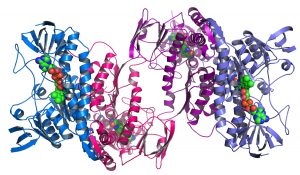Dec
06
2016
 Energy is the ultimate currency of our civilization. It takes energy to do stuff, by definition. Food is energy for manual labor, and it takes energy to make food. In many ways energy is a limiting factor for our technology. It is difficult to think of any one thing that would have a more wide ranging benefit than a new technology that affords cheap, clean, abundant energy.
Energy is the ultimate currency of our civilization. It takes energy to do stuff, by definition. Food is energy for manual labor, and it takes energy to make food. In many ways energy is a limiting factor for our technology. It is difficult to think of any one thing that would have a more wide ranging benefit than a new technology that affords cheap, clean, abundant energy.
This is the appeal of free energy. No description of an alleged free energy device is complete without a discussion of the impact the device would have on civilization. The appeal suckers investors and draws media attention. It kept Steorn going for ten years (they have finally liquidated), attracting 23 million Euros in investment. They had nothing, and never did – the 23 million was based entirely on a transparently empty promise.
The impending threat of global warming has raised the stakes even higher. Much of our cheap abundant energy is not clean, and putting previously sequestered CO2 back into the atmosphere is another limiting factor. Personal electronic devices also raise the stakes for the average consumer. We all want our smartphones and laptops to last longer on a charge. We will also soon want more mileage out of our electric cars.
Continue Reading »
Dec
05
2016
 The season finale of Westworld aired last night, a series based on a Michael Crichton book which was made into a 1973 film. I won’t give much away, so only very mild spoilers for those who haven’t seen it. I will say the last episode was probably the best of the season.
The season finale of Westworld aired last night, a series based on a Michael Crichton book which was made into a 1973 film. I won’t give much away, so only very mild spoilers for those who haven’t seen it. I will say the last episode was probably the best of the season.
The basic premise of the book/film/series is that it takes place in a futuristic theme park in which guests can visit the old west populated by robots that are there solely for their pleasure. They exist to lose gunfights, for sexual pleasure, to be victims or fill whatever role the guests want, and then be recycled to run through their plot loop all over again.
The HBO series uses the story line as an opportunity to explore the basic question of sentience. The robots are hyperrealistic. Unless you cut them open, you cannot tell them from a living human. They are extremely realistic in their behavior as well.
The robots clearly have a very advanced form of artificial intelligence, but are they self-aware? That is a central theme of the series. They have complex behavioral algorithms, they can reason, they express the full range of human emotions, and they have memory. They are kept under control largely by wiping their memory each time they are repaired, so that they don’t remember the horrible things that were done to them.
Some of the robots, however, start to break out of their confines. They “feel” as if they are trapped in a recurring nightmare, and have flashes of memory from their previous loops.
Continue Reading »
Dec
01
2016
 In September I wrote an article about a recent experiment at Harvard Medical School in which they created a very large agar plate in order to visualize bacterial colonies evolve drug resistance over time. I was primarily responding to Michael Behe’s argument that this experiment did not show evolution but “devolution.”
In September I wrote an article about a recent experiment at Harvard Medical School in which they created a very large agar plate in order to visualize bacterial colonies evolve drug resistance over time. I was primarily responding to Michael Behe’s argument that this experiment did not show evolution but “devolution.”
Recently Cornelius Hunter over at Evolution News and Reviews (a propaganda blog of the Discotute) wrote a response to my article. Hunter’s response is yet another example of how creationists engage in motivated reasoning and fail to either understand evolution or meaningfully engage with the scientific community. In fact, I found Hunter’s article to be largely incoherent, which is common because creationists are not trying to formulate a coherent scientific theory. They are just trying to provide cover for their ideological beliefs by creating doubt and confusion.
The first actual point I think I can extract from Hunter’s article is that the changes to the bacteria seen in the Harvard experiment were not actually evolution, just adaptation. He writes:
What Novella does not acknowledge, however, is that bacteria adaptation research, over several decades now, has clearly shown non-evolutionary change. For instance, bacterial adaptation has often been found to be rapid, and sensitive to the environmental challenge. In other words, when we look at the details, we do not find the evolutionary model of random variation slowly bringing about change, but rather environmentally directed or influenced variation.
That is not evolution. And indeed, the Harvard experiment demonstrated, again, very rapid adaptation. In just ten days the bacteria adapted to high doses of lethal antibiotic. As one of the researchers commented, “This is a stunning demonstration of how quickly microbes evolve.”
True, it is “stunning,” but “evolve” is not the correct term. The microbes adapted.
This is one common intellectual trick used by creationists – shift around your definitions as needed in order to manufacture apparent contradictions or at least confusion. Hunter is not working from a coherent operational definition of evolution. He gives no indication that he understands evolutionary theory, but that is hard to know through the fog of motivated reasoning.
Continue Reading »
 Energy is the ultimate currency of our civilization. It takes energy to do stuff, by definition. Food is energy for manual labor, and it takes energy to make food. In many ways energy is a limiting factor for our technology. It is difficult to think of any one thing that would have a more wide ranging benefit than a new technology that affords cheap, clean, abundant energy.
Energy is the ultimate currency of our civilization. It takes energy to do stuff, by definition. Food is energy for manual labor, and it takes energy to make food. In many ways energy is a limiting factor for our technology. It is difficult to think of any one thing that would have a more wide ranging benefit than a new technology that affords cheap, clean, abundant energy.
 The season finale of Westworld aired last night, a series based on a Michael Crichton book which was made into a 1973 film. I won’t give much away, so only very mild spoilers for those who haven’t seen it. I will say the last episode was probably the best of the season.
The season finale of Westworld aired last night, a series based on a Michael Crichton book which was made into a 1973 film. I won’t give much away, so only very mild spoilers for those who haven’t seen it. I will say the last episode was probably the best of the season. In September
In September 




